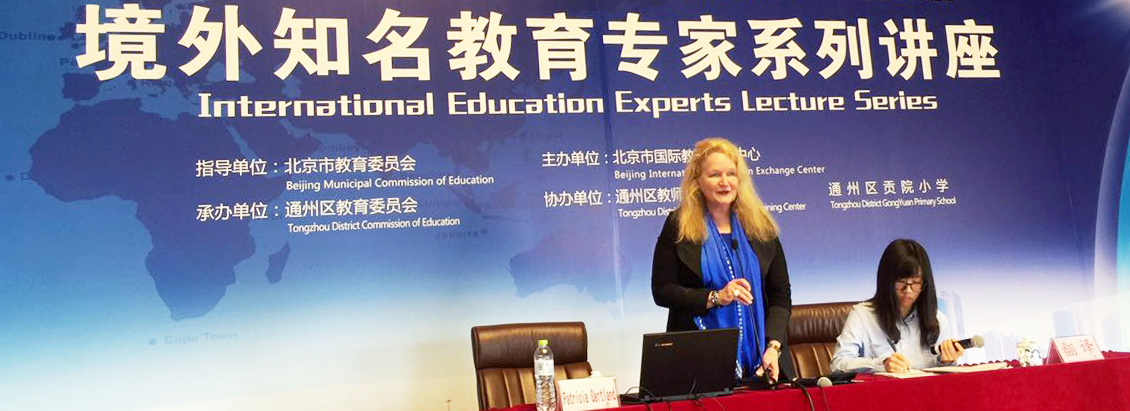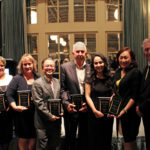BC shares teaching best practices at education seminars in Beijing
The Beijing International Education Exchange (BIEE) in collaboration with the Beijing Municipal Education Commission held a lecture series on International Education in China last month to explore ways to develop K-12 education in Beijing’s suburban school districts of Miyun, Yanqing, Tongzhou and Pinggu.
Leaders in International Education
Select British Columbian International Education leaders were invited to attend the seminar, including: BCCIE’s Executive Director Dr. Randall Martin, Director of Executive Educational Leadership at the University of British Columbia Dr. Steve Cardwell, who delivered a keynote speech, and Superintendent of Schools at Coquitlam School District Patricia Gartland, who presented on inquiry-based learning. BCCIE was pleased to interview Gartland following the event. Coquitlam School District enjoys strong relations with Beijing and has a formal Memorandum of Understanding (MOU) with both the Beijing Municipal Education Commission and the Tongzhou Education Commission.
“The Beijing Municipal Education Commission is very interested in new education approaches. They want every child to succeed. They want to move away from academic streaming and open-ended teaching methods are one possible solution,” Gartland said.
Inquiry-based learning: A global appeal
Inquiry-based learning is a pedagogical method where students first ask questions about the scenarios or issues they wish to solve. If properly structured, it fosters cross-curricular learning, creativity and problem-solving skills. The audience was receptive to Gartland’s approach. China’s education system is traditionally focused on standardized testing, such as the Gaokao, a rigorous exam students must complete for entry into post-secondary institutions. Chinese educators know they need to diversify educational practices to help all students excel to the best of their abilities.
“We know that China has over seven million university graduates each year and some of these graduates are having difficulty finding employment,” said Gartland.
Teacher guided inquiry-based learning method allows students to work more autonomously. This will be transformational for China, which has in the past had a lecture-based teaching approach. The move to student-centered learning will be a significant undertaking.
In many ways, the BC Education System has much to offer. The new BC K-12 curriculum lists cultural identity and creative thinking as core competencies, and Beijing is attracted by this approach. They want their students to be global thinkers.
The value of reciprocal knowledge exchange
However, BC also stands to learn from Chinese educators, and the BIEE seminar was important for strengthening bilateral relations.
Awareness of Chinese language and business practices are increasingly sought after by BC youth, and BC is taking steps to encourage this. China is BC’s second largest trading partner after the U.S. and knowledge of Chinese language will help students succeed in business.
Gartland herself has long had an interest in China and is the head of Coquitlam School District’s Confucius Institute, which provides after-school Mandarin lessons to students and community members. Coquitlam School District is also one of two school districts in the Lower Mainland that offers a Mandarin Bilingual Program.
As for future initiatives, Gartland added “We are always interested in sending more of our educators to China. We will continue to do so to help internationalize our school district.”



